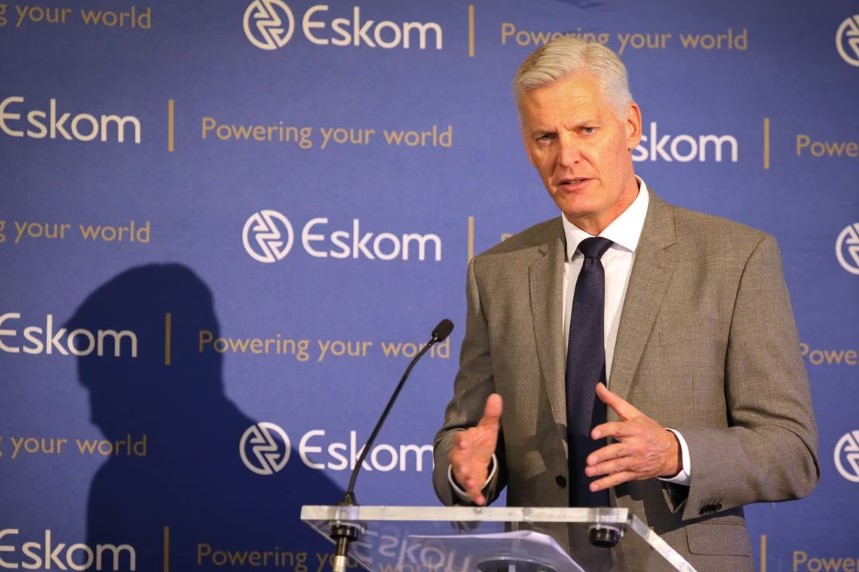André de Ruyter, the man tasked with revitalising South Africa’s ailing power utility, Eskom, has had a controversial tenure marked by both successes and setbacks. As CEO of the beleaguered state-owned enterprise, de Ruyter faced immense challenges, including corruption, mismanagement, and mounting debt. However, his dismissal from the position raised questions about the reasons behind his departure and the future of Eskom.
André de Ruyter’s Work at Eskom
Upon taking the helm at Eskom in December 2019, de Ruyter implemented several strategies aimed at turning the company around. His efforts included rooting out corruption, reducing Eskom’s debt burden, embracing renewable energy, and restructuring the utility into three separate entities for improved efficiency and investment opportunities. Despite these measures, de Ruyter faced considerable challenges, such as ageing infrastructure, labour disputes, and ongoing load shedding that hampered South Africa‘s economic growth.
Reasons Behind De Ruyter’s Dismissal
Allegations of Racial Discrimination
One of the key factors contributing to de Ruyter’s dismissal was the allegations of racial discrimination within Eskom. Accusations surfaced that under de Ruyter’s leadership, Black executives were unfairly treated, with some being dismissed or sidelined. These claims led to a significant outcry from labour unions and political parties, who called for his removal as CEO.
Slow Progress in Restructuring Eskom
Despite de Ruyter’s efforts to restructure Eskom, critics argued that the pace of change was too slow and that his plans had not yet yielded the desired results. The ongoing load shedding and financial struggles faced by the utility suggested that more needed to be done to ensure Eskom’s long-term stability and success.
Resistance to Renewable Energy Initiatives
De Ruyter’s push for renewable energy initiatives faced resistance from various quarters, particularly those within the coal industry who feared job losses and economic repercussions. This opposition created additional pressure on de Ruyter and his plans for Eskom’s future.
Loss of Confidence and Support
Ultimately, the combination of these factors led to a loss of confidence in de Ruyter’s ability to lead Eskom effectively. His dismissal was seen as a response to the growing dissatisfaction with his leadership and the perception that he was unable to deliver on his promises to revitalise the struggling power utility.
The Future of Eskom
With de Ruyter’s dismissal, questions have been raised about the future direction of Eskom and whether the progress made under his leadership will be continued. The South African government and Eskom’s board will need to carefully consider their next steps and the appointment of a new CEO who can navigate the complex challenges facing the utility. South Africa’s energy sector and economic stability depend on the success of these efforts.
André de Ruyter’s time at Eskom was marked by both progress and controversy. While he implemented several strategies aimed at addressing the utility’s deep-seated issues, his dismissal underscores the immense challenges that lie ahead for Eskom. As the nation’s power utility continues to grapple with financial woes, infrastructure problems, and the need for a sustainable energy future, the appointment of a new CEO capable of leading the company through these turbulent times will be critical.




